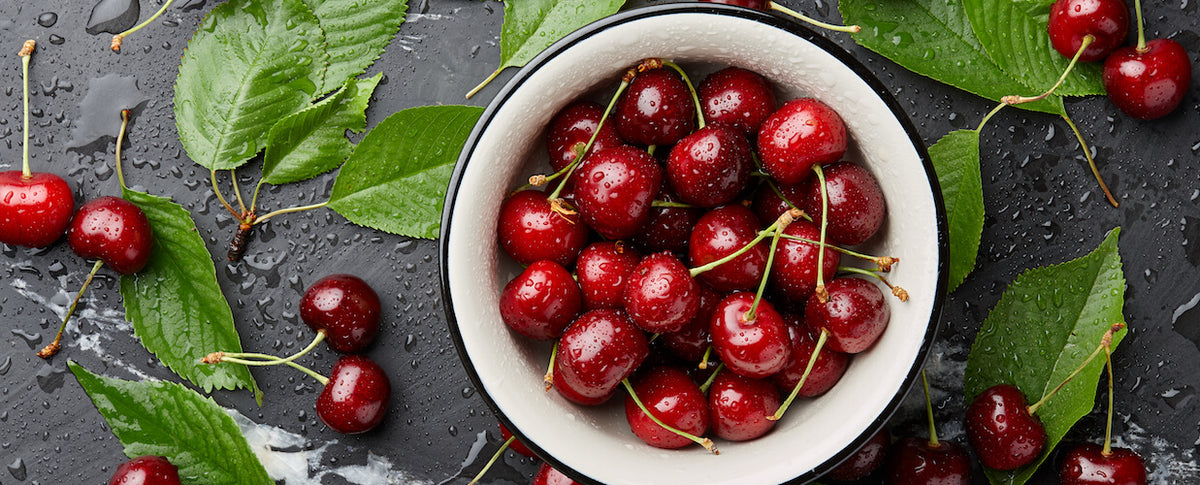How to Improve Sleep & Recovery With One Fruit

Sleep more and sleep better and you'll be the beneficiary of faster recovery, less pain, and greater performance. With that in mind, what's a simple key on how to improve sleep? Is there a single food containing a sneaky hormone we could all benefit from to improve our sleep and aid in recovery that we overlook every day? Let us break down the science for you.
How to Improve Sleep: Melatonin
Stress and sleep play a huge role in recovery. Less of each of these equals more unwanted soreness and fatigue. When you go to sleep, your body goes to work. The mere process of our body getting tired is the body’s way of saying “enough”. In order to optimize pillow time, it’s important to understand the habits and hormones that signal sleepiness.
First off, why is sleep so important?
Sleep-expert Dr. Kirk Parsley, a former Navy SEAL who served as an Undersea Medical Officer at Navy Special Warfare Group One, led the development of a sports medicine-style rehab center for elite operators. In working with the SEALs he saw up close the effect that sleep challenges have on performance, physically, cognitively and emotionally.
Parsley now works with a wide range of clients, athletes, and non-athletes alike. One of the more formidable types of clients he has are CEOs, many of whom operate under the belief that sleeping more than five hours is a weakness rather than a strength. Parsley reports that once he can get a client to commit to testing out good sleep hygiene and a stress-reducing sleep ritual—and then erase any sleep debt—the performance improvements are obvious. They are also underscored by blood tests confirming positive changes in hormones, inflammation and body chemistry. Long-term benefits can include highly-desirable changes in mood, body composition.
Good sleep, Parsley explains, demands coaxing our internal biology and clock the way it’s meant to be coaxed. Our caveman ancestors didn’t have to deal with the ramifications of artificial light, smartphones, and TVs. After the sunset and darkness took hold, hormones shifted from those working to stay awake, active and alert to those that promote sleep and all the restorative internal activities that sleep enables. Not just the physical body repair but critical brain-function upkeep like processing memories.
So in our modern times where conveniences and technology can easily upset the intended workings of our biological clocks and circadian rhythms, a sleep ritual can help things move smoothly along into deep, healthful sleep.
Key to Parsley’s recommendations for a powerful sleep ritual: no TV or computers two or more hours before bed. Rather, taking up a practice like yoga or meditation to help induce the conditions that are good for falling asleep.
And then there’s melatonin.
Melatonin is a hormone produced in the pineal gland that signals feelings of drowsiness. When the body senses light, it shuts down the production of melatonin so that we can stay awake, then turns it back on when the sun starts to set. Darkness falling signals the body to produce melatonin naturally, lulling us into rejuvenating slumber. Melatonin supplements are available, but whole food versions are always preferred. One such source is cherries. So making cherries a part of dinner may assist in our sleep hygiene process.
Sweet Cherry Dessert
Ingredients
½ cup frozen sweet cherries
1 tsp cinnamon
1 tbsp chia seeds
½ cup Greek yogurt
Directions
Mix frozen cherries and cinnamon in a small bowl. Microwave 30 seconds, stir, and microwave an additional 10-15 seconds. Stir in chia seeds. Pour cherry topping on top of chilled Greek yogurt.
Optional topper: 1 Tbsp chopped walnuts.
There's plenty more you can do to improve your sleep. Both personally and as a medical doctor, Parsley came to realize that poor sleep was the single most important component of lifestyle—more important than nutrition and exercise.
Want to know more about how to improve sleep? Learn more about Dr. Parsley's recommendations here. At Spartan, we recommend testing more melatonin-rich based foods in your diet at bedtime to see if this can be an answer to the question of "how to improve sleep?" and aid in better recovery.




